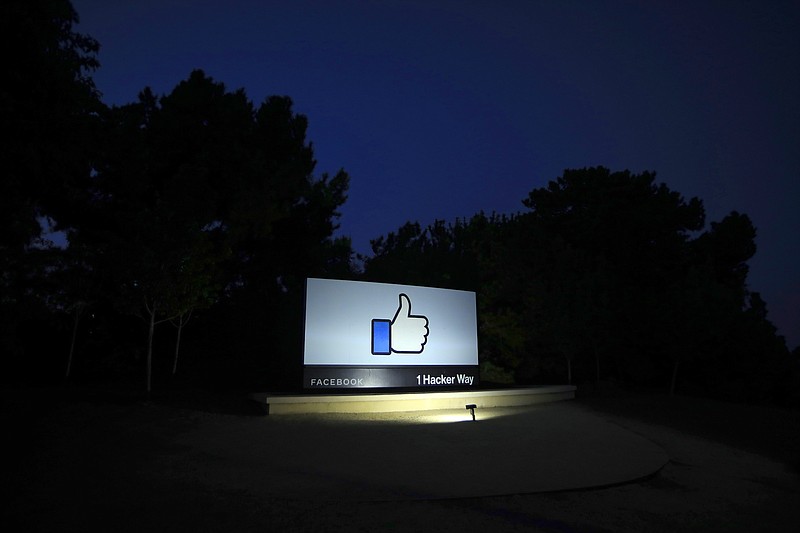Facebook, like other big tech firms, has sought to maintain its dominance, and to keep profits rolling in, by gobbling up any upstarts that have threatened its market power. The company's view of competition can be summed up by an email sent in 2008 by its chief executive and founder, Mark Zuckerberg: "It is better to buy than compete."
On Wednesday, the Federal Trade Commission, as well as 48 attorneys general, filed lawsuits in U.S. District Court against the company alleging its history of buying out competitors amounts to an illegal effort to maintain its monopoly. The suits also call for a breakup of the Silicon Valley firm, particularly Instagram and WhatsApp. The lawsuits, coupled with an October Justice Department case targeting Google, represent the most meaningful attempts to check Big Tech's power in two decades.
Regulators could have imposed conditions on or even prevented Facebook, Google and others from pursuing deals that solidified their dominance. But they didn't, and now they're seeking to correct their apparent mistakes.
While the forced calving off of WhatsApp or Instagram would be a dramatic step, the plaintiffs' desire for Facebook to undergo stricter review for future acquisitions may have the longest lasting impact on antitrust enforcement. With hoards of cash, companies like Google and Facebook have been particularly acquisitive, snatching up smaller firms seemingly at will.
Faced in 2012 with the threat of competing with Instagram for photo sharing and, two years later, WhatsApp for messaging, Facebook simply opened its checkbook.
Without proper regulatory intervention, the penchant for powerful companies to buy rising startups imperils both consumers and the broader economy. With exclusive access to data from billions of mobile devices, computers and web browsers, tech companies can detect the emergence of potential rivals before they are given the chance to grow on their own or to gain wider consumer acceptance. Companies also use a relatively common practice known as an "acquihire," where a smaller company is purchased for the express purpose of shutting it down while retaining its staff.
To help rein in these practices, the plaintiffs asked the court to require that Facebook provide advance notice to regulators of any acquisition of at least $10 million.
Tech firms often seem to perceive themselves beyond the reach of government oversight. Even amid heightened scrutiny, Facebook last month announced it planned to buy Kustomer, a startup focused on customer relationship management, for nearly $1 billion.
When bigger companies make startups an offer, it can be hard for stakeholders to resist cash over the risky prospect of a bigger return later, even when such a deal may not be in the best interests of consumers. But deals intended only to squelch competitors generally run afoul of antitrust law. When industries are consolidated, consumer choice, workers' wages and innovation can all suffer.
Yet, startups that threaten more moneyed firms like Facebook or Google often find themselves backed into a corner - agree to be bought or expect to be squashed.
In 2012, Instagram was compelled to sell itself for $1 billion or endure Facebook using its "power as a sword," according to the states' complaint, and the likelihood that Zuckerberg would "go into destroy mode" if it remained independent. Two years later, Facebook used similar tactics in its $19 billion purchase of WhatsApp, then a rising messaging app with little revenue. After closing the deal, Facebook internally described WhatsApp as "probably the only company which could have grown into the next FB," according to the complaint.
Particularly frustrating were Facebook's broken promises to preserve the independence of both Instagram and WhatsApp and to not use WhatsApp data toward ad sales. Facebook reneged on those promises, the states allege, working to more tightly integrate the services into Facebook, which could be viewed as protection against a breakup because it made it more difficult to disentangle them.
With fewer competitors, customers dissatisfied with Facebook's data collection or privacy policies have "nowhere else to go," the states allege.
A monopoly should be judged not just on its ability to raise prices for consumers with impunity. Tech firms, after all, tend to offer their services for free in order to collect customer data and sell it to advertisers. Free from competitive forces, they may also weaken privacy protections for even greater data collection or fail to maintain their services' quality.
Facebook responded to the lawsuits by emphasizing that its service is free to use. "Antitrust laws exist to protect consumers and promote innovation, not to punish successful businesses," the company said.
That is not an inaccurate description of Facebook's business, nor of antitrust law. But its assertion that "the government now wants a do-over" reads like sour grapes from a technology giant that has repeatedly slipped through cracks in the system by downplaying its true intentions.
Like many big internet companies, Facebook makes money by selling consumers' data. Consumers pay directly with their time, and, indirectly, to the extent Facebook's fees raise the prices of advertised products. Competition helps to limit both costs.
The idea that antitrust laws exist only to protect the price consumers pay was invented by conservative legal scholars in the 1970s. It has since served not as a barrier, but rather to facilitate corporate concentration at the expense of other businesses, of workers and of economic growth.
Modern antitrust law is an American innovation. Beginning in the late 1800s, Congress explicitly sought to impose limits on large firms to limit their political power and for the good of the economy. The Facebook case marks a welcome revival of that broader conception of the public interest.
The New York Times
